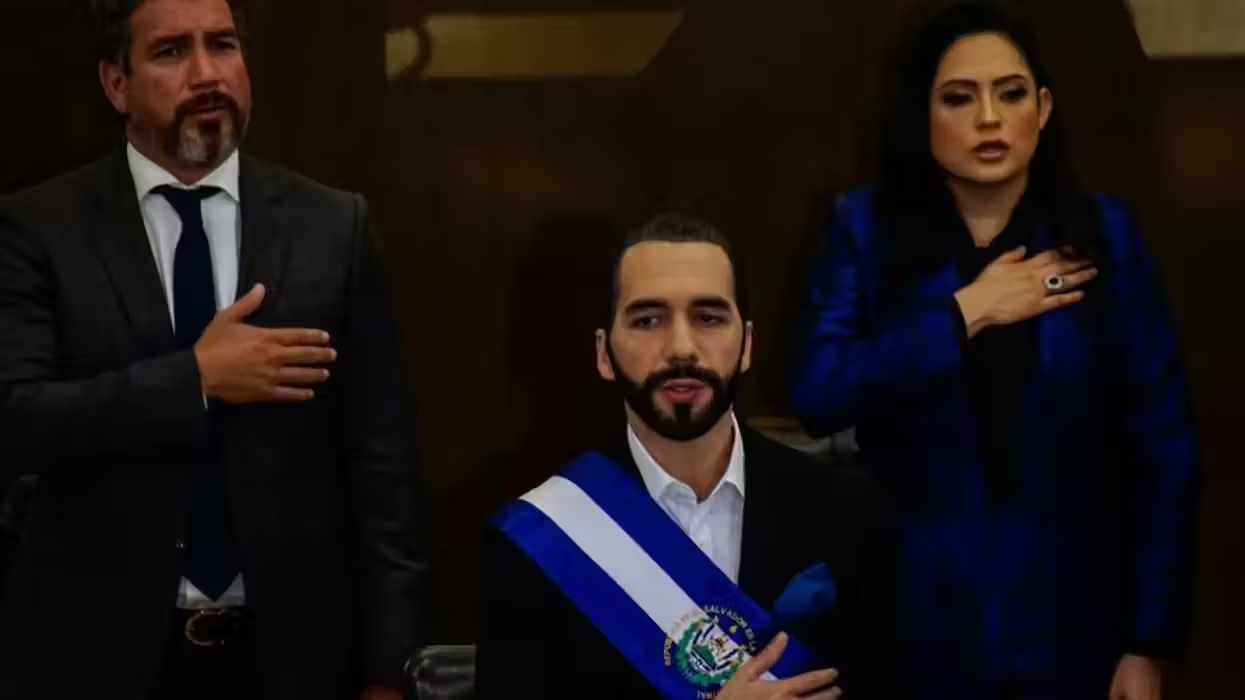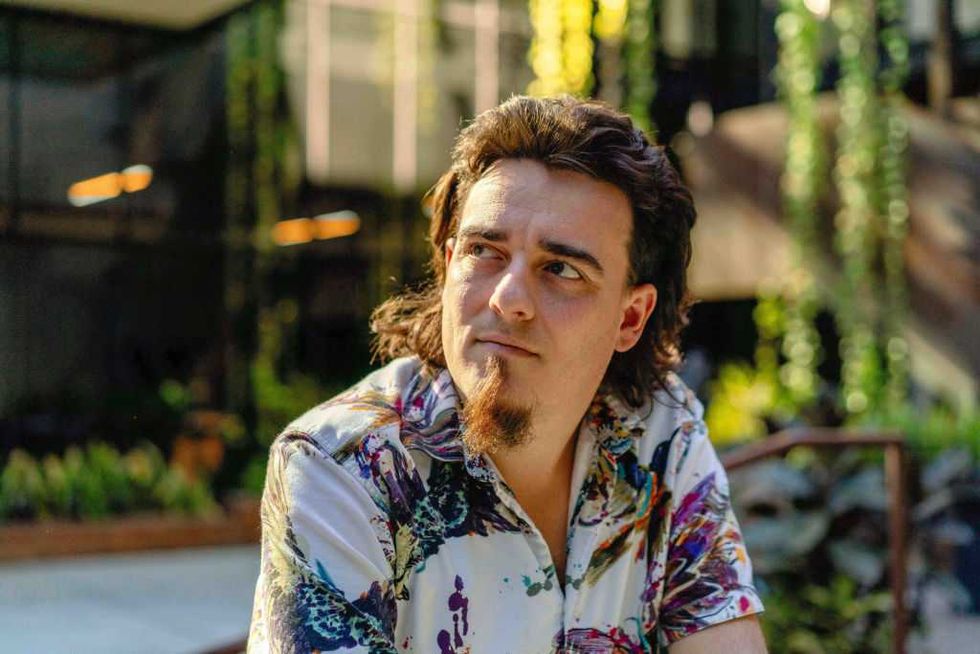
Photo by Alex Pena / Contributor via Getty Images

It's not legal tender anymore, but it's still a peer-to-peer currency.
In late August, I had the pleasure of visiting El Salvador for the first time. I didn’t know what to expect. The bar had been set high by both conservative and liberal media, who either praised or decried President Nayib Bukele’s vigorous war on crime. Within a few hours of arrival, I saw the media reports were true. El Salvador, once a violent, gang-ridden nightmare, was now a place of peace.
Much has been written about Bukele’s crackdown — understandably so, given the success of his efforts. El Salvador’s president deserves unending praise for transforming his country. Yet, this success has overshadowed his other policies. President Bukele’s Bitcoin adoption program, for instance, is of remarkable significance.
In September 2021, El Salvador shocked the world by becoming the first country to accept Bitcoin as legal tender. Businesses were immediately required to accept the cryptocurrency. Western Bitcoin enthusiasts were overjoyed. Many Salvadorans, most of whom had previously existed in a cash economy, were skeptical.
'Paying tax liabilities denominated in Bitcoin was just, I guess, a hard no.'
After a few years, there were signs that the initiative had failed to meet expectations. In an August 2024 interview with Time, President Bukele conceded as much:
Bitcoin hasn't had the widespread adoption we hoped for. Many Salvadorans use it; the majority of large businesses in the country have it. You can go to a McDonald's, a supermarket, or a hotel and pay with Bitcoin. It hasn’t had the adoption we expected. The positive aspect is that it is voluntary; we have never forced anyone to adopt it. We offered it as an option, and those who chose to use it have benefited from the rise in Bitcoin.
But it wasn’t until the International Monetary Fund got involved that President Bukele made the difficult decision to scale back El Salvador’s Bitcoin program. As a condition for $1.4 billion in financial assistance, the IMF required El Salvador to revoke Bitcoin’s status as legal tender. Bukele accepted the IMF’s terms. In February 2025, the Salvadoran government passed an amendment to the Bitcoin law, which rendered use of the cryptocurrency voluntary and limited to the private sector.
Just like that, El Salvador’s Bitcoin experiment was done. Or was it?
When I traveled to El Salvador, I had bought into the media narrative regarding its Bitcoin adoption program — that, however interesting a program it might have been, it failed. But curiously enough, no one I spoke to down there shared that perspective.
“I mean, it's, like, pretty f**king amazing,” Jake Hamilton, an American computer programmer who splits his time between Austin and San Salvador, told me. “I can pay with lightning for oysters at a beach shack in Surf City.”
Jake’s enthusiasm for El Salvador is significant. He isn’t some casual Bitcoin fan who merely enjoys the novelty of paying for oysters in cryptocurrency. In many ways, Jake’s life — professionally, socially, and economically — revolves around Bitcoin. So when he praises El Salvador’s Bitcoin program, it means something.
His Bitcoin journey began in 2015. After completing his undergraduate studies, Jake busied himself researching philosophy graduate programs. During that period, he took a seminar titled Bitcoin and Philosophy. The instructor: Nick Land, the arcane techno-philosopher known for his accelerationist theories.
Jake didn’t know what to expect, but the seminar proved epiphanous. “He’s five minutes, 10 minutes of the first session, and I realize, like, holy s**t, the place to be doing philosophy — to be in actual philosophy of the world right now — is in Bitcoin: writing code and working in blockchain,” he explained to me.
RELATED: Right-wing investor to challenge traditional banking with national crypto bank

After the seminar, Jake decided to move to New York, where he attended a coding bootcamp and dedicated his time to becoming a programmer. Around 2019, he discovered Urbit, Curtis Yarvin’s niche operating system, which connected him to numerous right-of-center programmers and crypto enthusiasts. Along with a few friends from that crowd, Jake ventured to Central America and eventually landed in El Salvador, arriving at the beginning of President Bukele’s special operation.
It was a good time to be in El Salvador. Jake witnessed the restoration of order play out in real time. Yet, it was Bitcoin, not public safety, that drew him there. Jake knew a few Western lawyers in the country who practiced cryptocurrency law. They told him that something unique was taking shape in El Salvador — and that he wouldn’t want to miss it.
Although President Bukele didn’t sign the Bitcoin law until June 8, 2021, El Salvador had already developed a nascent crypto scene. Jake told me that an anonymous donor contributed $100,000 (in Bitcoin, naturally) to the beach town of El Zonte in 2019 to establish a circular crypto economy. This began attracting Bitcoin-inclined expats and tourists. Bukele’s national transformation only amplified that appeal.
Needless to say, Jake fell in love with El Salvador. When he isn’t in Austin, Texas, working on blockchain technology, he’s in El Salvador, working on blockchain technology — but also surfing, driving through the mountains, and brushing shoulders with El Salvador’s political elite. He’s become a central figure in the Salvadoran expat scene. He holds the lease on the Palestra mansion, a massive house overlooking the hills of San Salvador that often hosts parties and provides lodging for aligned travelers.
I visited the mansion a few times during my trip. The first time was at night following the Palestra Society’s annual conference. As I stood on the back patio, surrounded by a coterie of interesting people, I looked down at the lights of San Salvador and was struck by the peculiarity of it all. How did a small Latin American country with a GDP of $35 billion become a hub for heterodox right-wing Westerners? There are certainly several factors. But Bitcoin is a big one.
Despite Jake’s appreciation for El Salvador’s Bitcoin adoption program, he conceded that it faced challenges. “They did have to negotiate with the IMF, obviously, and the paying tax liabilities denominated in Bitcoin was just, I guess, a hard no,” he lamented. Moreover, given the low level of education and tech literacy in El Salvador — a country where the average monthly salary is roughly $400 — teaching people the finer points of self-custody proved difficult.
While El Salvador reversed its decision to accept Bitcoin as legal tender, no other country boasts as much Bitcoin integration. Others have tried, but they don’t come close. “There’s a bit of Costa Rica that’s informally called Bitcoin Jungle, where there’s like a 20-mile radius where most of the businesses take Bitcoin,” Jake said. “But there’s nothing comparable to El Salvador in the world.”
So was El Salvador’s Bitcoin adoption program a failure, as mainstream sources claim? Yes and no. On the one hand, its decision to no longer accept Bitcoin as legal tender is proof that the program didn’t entirely succeed. On the other, El Salvador is now the most Bitcoin-integrated country in the world — no small accomplishment.
Furthermore, since agreeing to the IMF’s terms, El Salvador has continued to purchase Bitcoin; hosted PLANB 2025, the largest cryptocurrency conference in Central America; passed a law allowing investment banks to hold Bitcoin; and promoted Bitcoin mining using geothermal energy from volcanoes.
It appears that Bitcoin is, in fact, alive and well in El Salvador. Abolishing its status as legal tender didn’t kill it — it merely altered the parameters. So while you cannot pay your Salvadoran taxes in Bitcoin, you can still do more with crypto there than anywhere else in the world.